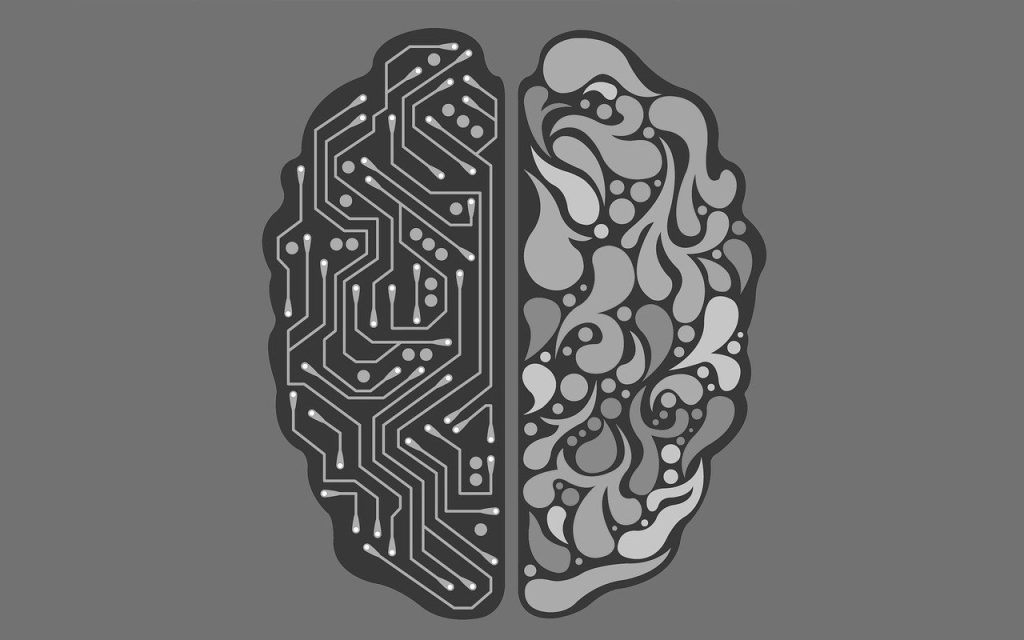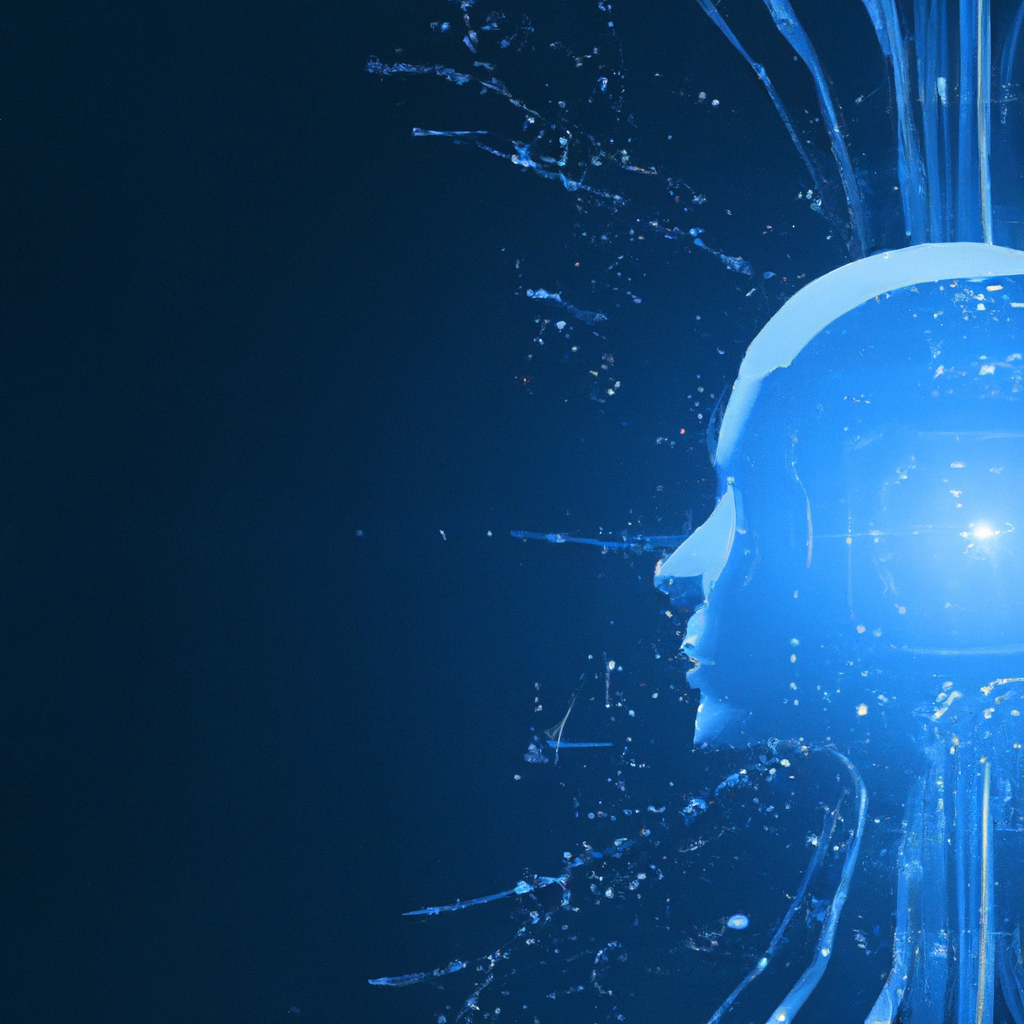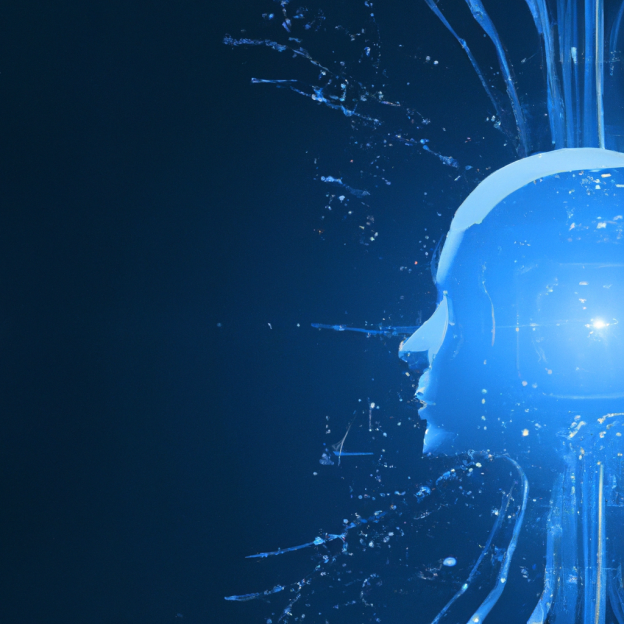Artificial intelligence (AI) has been making waves in various industries, and now the question arises: will AI replace digital marketing and sales? With advancements in technology, AI has the potential to revolutionize traditional marketing and sales techniques, offering innovative solutions driven by data analysis and automation. However, while AI possesses the capabilities to streamline processes and enhance customer experiences, it is essential to examine the impact it may have on personalization and human touch in marketing and sales strategies. So, let’s explore the possibilities, advantages, and potential drawbacks of AI’s integration in digital marketing and sales.

This image is property of pixabay.com.
The Rise of Artificial Intelligence in Digital Marketing and Sales
Artificial intelligence (AI) has quickly become a game-changer in the field of digital marketing and sales. As technology continues to advance at an unprecedented rate, businesses are increasingly relying on AI to boost their marketing efforts and drive sales. From improving efficiency and accuracy to enabling personalized customer experiences, AI has numerous benefits to offer. However, it also comes with its own set of challenges. In this article, we will explore the rise of AI in digital marketing and sales, its benefits, challenges, and the future trends that await us.
Benefits of Using Artificial Intelligence in Digital Marketing
Improved Efficiency and Accuracy
One of the main advantages of using AI in digital marketing is the improved efficiency and accuracy it brings to various tasks. AI-powered tools and algorithms can automate time-consuming and repetitive processes, allowing marketers to focus on more strategic and creative initiatives. For example, AI can analyze large amounts of data and generate insights much faster and more accurately than humans. This helps businesses make data-driven decisions and optimize their marketing efforts for better results.
Data Analysis and Insights
Data is the lifeblood of digital marketing, and AI excels at analyzing and interpreting vast amounts of data. By leveraging machine learning algorithms, AI can uncover actionable insights from customer behaviors, preferences, and trends. This allows marketers to better understand their target audience, tailor their messaging, and deliver personalized experiences. AI-powered data analysis also enables marketers to optimize their campaigns in real-time, making adjustments based on actual data rather than assumptions.
Personalization and Customer Experience
In today’s highly competitive market, personalization is more important than ever. AI plays a crucial role in delivering personalized experiences to customers. By analyzing historical data and customer interactions, AI algorithms can identify patterns and preferences, allowing businesses to tailor their marketing messages and offers to individual customers. This level of personalization not only improves customer satisfaction but also increases conversion rates and customer loyalty.
Automation of Repetitive Tasks
AI-powered automation is another significant benefit of using AI in digital marketing. By automating repetitive and mundane tasks, AI frees up marketers’ time to focus on more valuable activities. For instance, AI-powered chatbots can handle customer inquiries, provide instant support, and even make personalized product recommendations. This not only improves customer satisfaction but also enables businesses to operate 24/7 without the need for human intervention.

This image is property of pixabay.com.
AI-Powered Sales Assistants
While AI has made significant strides in digital marketing, its impact on sales should not be overlooked. AI-powered sales assistants can revolutionize the way businesses approach and close deals.
Lead Scoring and Predictive Analytics
AI and machine learning algorithms can analyze customer data to score leads based on their likelihood of conversion. By considering various factors such as demographics, behavior, and purchasing history, AI can accurately predict which leads are more likely to become paying customers. This allows sales teams to prioritize their efforts and focus on the most promising leads, resulting in higher conversion rates and improved sales performance.
Improved Customer Communication
AI-powered sales assistants can also enhance customer communication throughout the sales process. They can engage with customers in real-time, answer questions, address concerns, and provide tailored recommendations. With natural language processing capabilities, AI-powered assistants can understand and respond to customer queries accurately and efficiently. This not only improves customer satisfaction but also enables sales teams to engage with a larger number of leads simultaneously.
Sales Process Optimization
AI can optimize the sales process by analyzing data and identifying areas for improvement. By identifying patterns and trends in successful sales interactions, AI can provide recommendations on the best sales strategies and tactics to adopt. This helps sales teams become more effective and efficient in closing deals, resulting in increased revenue and improved overall performance.
Performance Monitoring and Coaching
AI-powered tools can monitor sales team performance and provide valuable insights to managers and team leaders. By analyzing sales calls and interactions, AI can identify strengths and weaknesses, provide feedback, and offer coaching tips to improve performance. This helps sales teams continuously develop their skills and achieve higher levels of success.
Challenges in Implementing AI in Digital Marketing and Sales
While the benefits of AI in digital marketing and sales are undeniable, there are also various challenges that need to be addressed for successful implementation.
Cost and Implementation
Implementing AI technologies can be a significant investment for businesses. The cost of acquiring AI tools and training employees to use them effectively can be prohibitive for some organizations, especially smaller ones. Additionally, integrating AI into existing systems and processes can be complex and time-consuming. Businesses must carefully assess the cost-benefit ratio and ensure that they have the resources and infrastructure in place to support AI implementation.
Data Privacy and Security
As AI relies heavily on data, ensuring data privacy and security is crucial. With the increasing amount of customer data being collected, businesses must have robust data protection measures in place. This includes complying with relevant regulations, implementing encryption and authentication protocols, and regularly monitoring and updating security measures. Failure to prioritize data privacy and security can lead to reputational damage and legal repercussions.
Ethical Considerations
The use of AI raises ethical concerns that need to be carefully addressed. For example, AI-powered algorithms may inadvertently perpetuate biases or discriminate against certain groups. It is essential for businesses to ensure that AI is used ethically and responsibly, and that the decisions made by AI align with human values and principles. Transparency and accountability in AI systems are critical to maintaining trust and avoiding potential harm.
Limited Human Interaction
While AI can automate and streamline many tasks, it also comes with the downside of limited human interaction. Some customers may prefer human interactions and find AI-powered communication impersonal or frustrating. Balancing AI automation with the human touch is crucial to ensure a positive customer experience. Businesses must carefully consider when and how to integrate AI into their customer interactions to strike the right balance.

This image is property of pixabay.com.
Hybrid Approach: AI and Human Collaboration
Rather than completely replacing humans, the future lies in a hybrid approach of AI and human collaboration. By combining the strengths of AI and human intelligence, businesses can achieve optimal results in their digital marketing and sales efforts. AI can handle repetitive tasks, process large amounts of data, and provide valuable insights, while humans can bring creativity, empathy, and critical thinking to the table. This collaboration allows for a more personalized, efficient, and effective approach to marketing and sales.
Future Trends in AI for Marketing and Sales
Looking ahead, several exciting trends are on the horizon for AI in marketing and sales.
Hyper-Personalization
As AI continues to advance, hyper-personalization will become the norm. AI algorithms will analyze vast amounts of customer data to deliver highly customized and relevant experiences. From personalized product recommendations to tailored marketing messages, businesses will be able to create unique experiences for each individual customer.
Voice and Visual Search
With the rise of voice assistants and smart devices, voice search will become increasingly important. AI-powered virtual assistants will understand and respond to voice queries, providing users with immediate and relevant information. Similarly, visual search will enable customers to search for products using images, allowing businesses to deliver targeted offers based on customer preferences.
Enhanced Chatbots and Virtual Assistants
Chatbots and virtual assistants will become even more advanced, capable of handling complex customer interactions and providing personalized support. With advancements in natural language processing, chatbots will be able to understand and respond to customer queries accurately and in a conversational manner. This will further improve customer engagement and satisfaction.
Augmented Reality Integration
Augmented reality (AR) will play a significant role in marketing and sales, providing customers with interactive and immersive experiences. AR can allow customers to visualize products in their own environment before making a purchase, enhancing their buying decision process. Businesses can leverage AI-powered AR tools to create innovative marketing campaigns that capture customers’ attention and drive sales.
Machine Learning for Marketing Optimization
Machine learning algorithms will continue to be a powerful tool for marketing optimization. By continuously analyzing and learning from data, AI can identify patterns, predict customer behaviors, and optimize marketing strategies in real-time. This will enable businesses to deliver the right message to the right audience at the right time, maximizing conversion rates and ROI.

Conclusion
Artificial intelligence is revolutionizing the world of digital marketing and sales. With its ability to improve efficiency, personalize customer experiences, and drive better results, AI has become an indispensable tool for businesses. While there are challenges to overcome, such as cost, data privacy, and ethical considerations, a hybrid approach that combines AI with human collaboration holds great potential. Looking ahead, the future of AI in marketing and sales looks promising, with hyper-personalization, voice and visual search, enhanced chatbots, augmented reality, and machine learning leading the way to more impactful and successful digital strategies. Embracing AI in a responsible and thoughtful manner will undoubtedly help businesses thrive in an increasingly competitive landscape.
